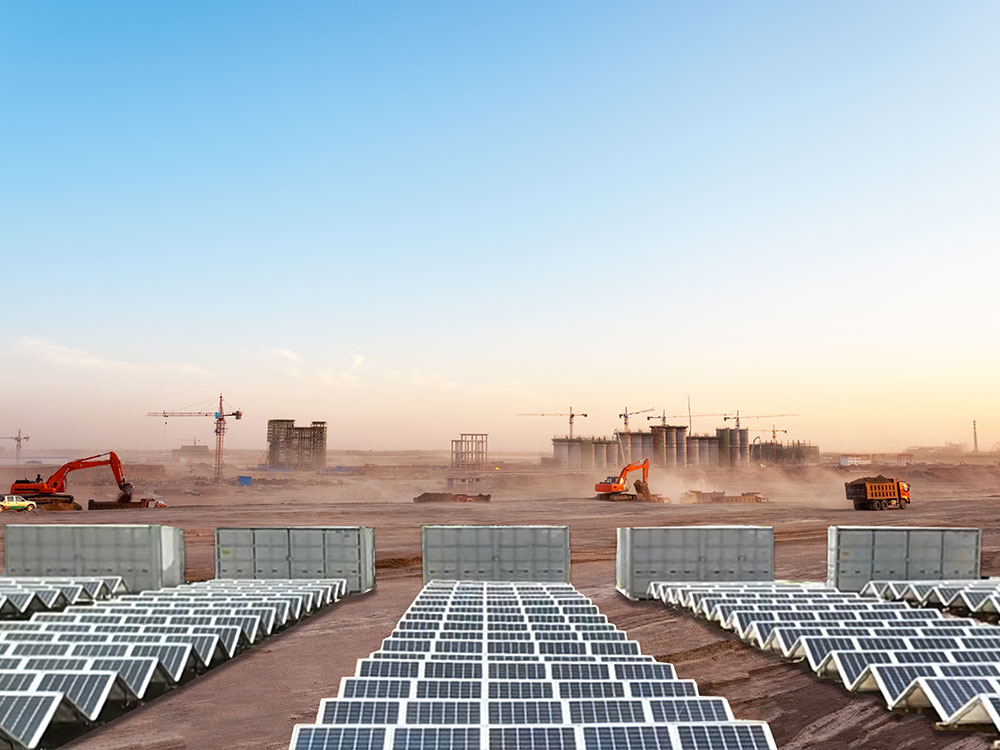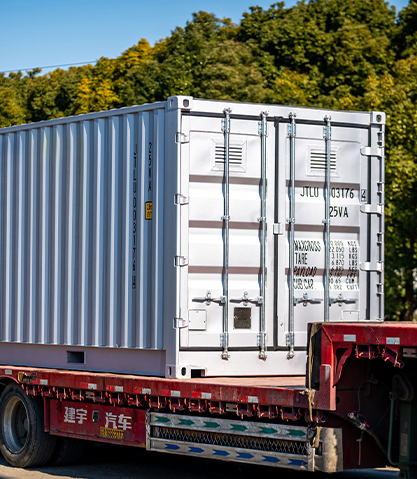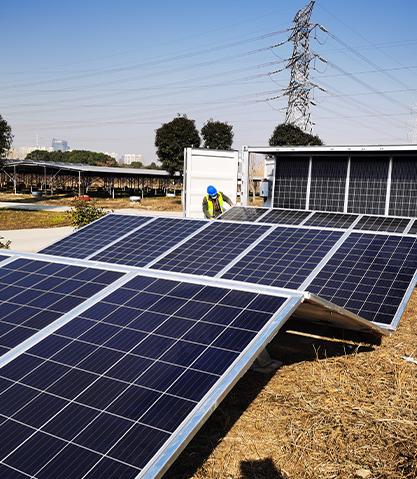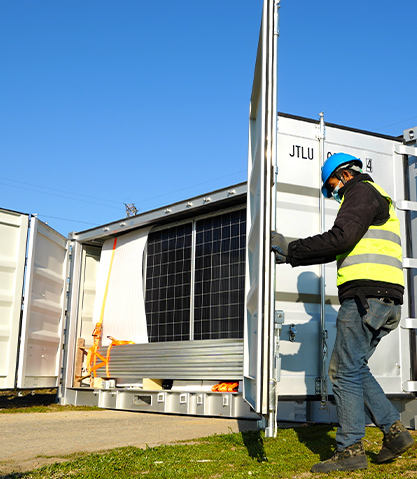Content
- 1 Sustainable Power Generation for Remote Construction Sites
- 2 Reducing Carbon Footprint and Air Pollution
- 3 Lower Operational and Maintenance Costs
- 4 Improved Project Efficiency and Energy Stability
- 5 Adaptability and Quick Deployment
- 6 Long-Term Environmental and Economic Impact
- 7 Comparison Between Diesel Generators and Mobile Solar Power Containers
- 8 Conclusion
Sustainable Power Generation for Remote Construction Sites
Mobile solar power containers provide a decentralized and eco-friendly energy solution for off-grid construction projects. These containerized units integrate solar panels, inverters, and battery storage into a compact and mobile system, allowing sites to operate independently without reliance on grid electricity or fuel-powered generators. The result is a cleaner and more stable energy supply, essential for remote areas where access to conventional infrastructure is limited.
Reducing Carbon Footprint and Air Pollution
Traditional diesel generators emit significant amounts of carbon dioxide, nitrogen oxides, and particulate matter. By contrast, mobile solar power containers use renewable energy, reducing emissions dramatically. This transition supports corporate sustainability goals and aligns with stricter environmental regulations in construction sectors. Additionally, solar systems operate silently, minimizing noise pollution and creating a safer, more comfortable working environment.

Lower Operational and Maintenance Costs
One of the most tangible advantages of mobile solar power containers is the significant reduction in operating expenses. Since solar energy is free once installed, construction sites can drastically cut down on fuel costs and logistics associated with transporting diesel to remote locations. The maintenance requirements are minimal, as solar panels and batteries need less frequent servicing compared to mechanical engines. Over time, the return on investment becomes evident through both cost savings and energy reliability.
Improved Project Efficiency and Energy Stability
Energy instability is a common challenge in off-grid construction environments. Mobile solar power containers offer stable voltage and continuous power delivery, supporting machinery, lighting, and site monitoring systems without interruption. Advanced energy management systems integrated into these containers allow real-time monitoring of consumption, helping project managers allocate resources more efficiently and avoid downtime caused by power shortages.
Adaptability and Quick Deployment
The modular nature of mobile solar power containers allows rapid deployment in diverse terrains—from mining sites and bridge construction zones to temporary infrastructure projects. The plug-and-play setup enables construction teams to install the system quickly without complex electrical work. Moreover, the portability of these containers ensures that once one project is completed, the same unit can be transported and reused elsewhere, maximizing equipment utilization.
Long-Term Environmental and Economic Impact
When viewed over the long term, mobile solar power containers contribute to sustainable development goals by lowering greenhouse gas emissions and promoting energy self-sufficiency. The economic impact extends beyond operational savings—companies using renewable systems can also benefit from tax incentives, carbon credits, and a stronger environmental reputation. These benefits translate into competitive advantages when bidding for government or international projects that emphasize sustainability compliance.
Comparison Between Diesel Generators and Mobile Solar Power Containers
| Feature | Diesel Generator | Mobile Solar Power Container |
| Energy Source | Fossil fuel-based | Renewable solar energy |
| Emissions | High CO₂ and pollutants | Zero emissions during operation |
| Operating Costs | High due to fuel and maintenance | Low with minimal maintenance |
| Noise Level | High noise pollution | Near-silent operation |
| Mobility and Setup | Requires manual assembly and refueling | Fully containerized, plug-and-play setup |
Conclusion
Deploying mobile solar power containers in off-grid construction sites combines environmental responsibility with financial practicality. By replacing diesel-based systems, companies can achieve cleaner operations, reduced expenses, and greater project efficiency. As sustainable construction practices become a global priority, these containerized solar units represent a future-ready power solution for remote and temporary project environments.

 English
English 中文简体
中文简体 عربى
عربى



